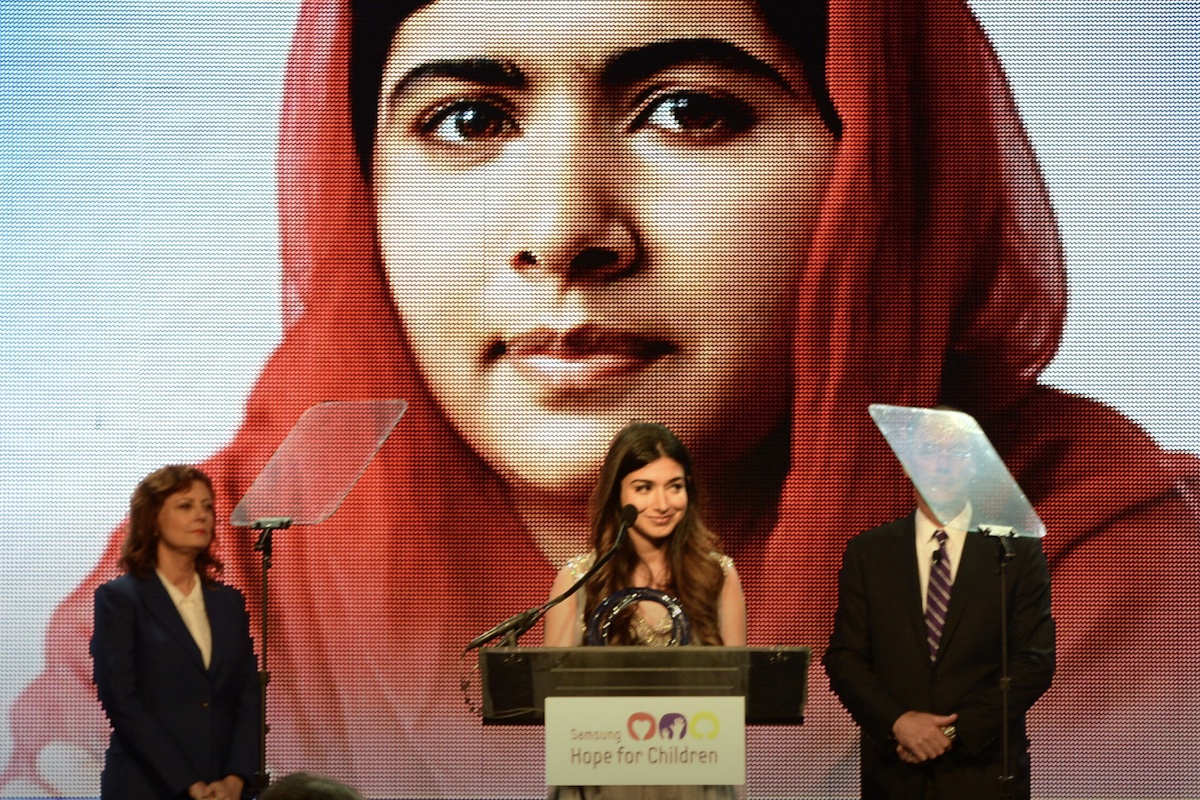Thomas Edison. Henry Ford. Bill Gates. Jeff Bezos. If asked to come up with a list of influential entrepreneurs, these might be the names that first spring to mind. After all, these men did indeed set in motion world-changing technologies, processes and businesses that spawned many of the conveniences we take for granted today.
But entrepreneurship is taking place all around the world, led by the varied interests and concerns of people from a diverse range of backgrounds. And while many of today’s groundbreaking entrepreneurs may not be chasing the same glory, their innovative businesses are nonetheless changing people’s lives. As entrepreneur Guy Kawasaki said, “Great companies start because the founders want to change the world … not make a fast buck.”
While they are effecting change in very different parts of the globe, the world’s most influential entrepreneurs all have certain traits in common: a strong work ethic, a passion for what they do, a flexible attitude, hunger to learn, motivation and creativity. Their processes may vary, but the end result? An inspiring world map of life-changing innovation.
Airbnb, Uber and other companies have helped people turn untapped assets into vehicles for wealth creation. But Beerud Sheth and the team at Upwork have gone one step further: they’ve proven that people are the greatest untapped resource for improving the world in which we live. It’s just one of the reasons TIME named Upwork one of the top 100 most influential companies in 2022.
Like many of the people highlighted in this article, Sheth is an MIT graduate who saw synergy in connecting people and technology. In 1998, he pioneered Elance, now known as Upwork, connecting businesses with independent professionals around the world.
This perfect storm of economics allows businesses to get high-quality services for a very low price, increasing their profit margins, and it allows people in far-flung corners of the world to earn high incomes no matter where they live, as long as they have access to the internet.
The company is not expected to make a profit for another year or two, yet it has already made a difference. In 2021 it generated more than US$502 million in revenue.
The Upwork marketplace hosts over 145,000 clients who spend a combined US$2.5 billion annually on the platform. However, for the people around the globe who use its services, the most exciting opportunity it offers is breaking cycles of poverty without people having to leave their homes or families.
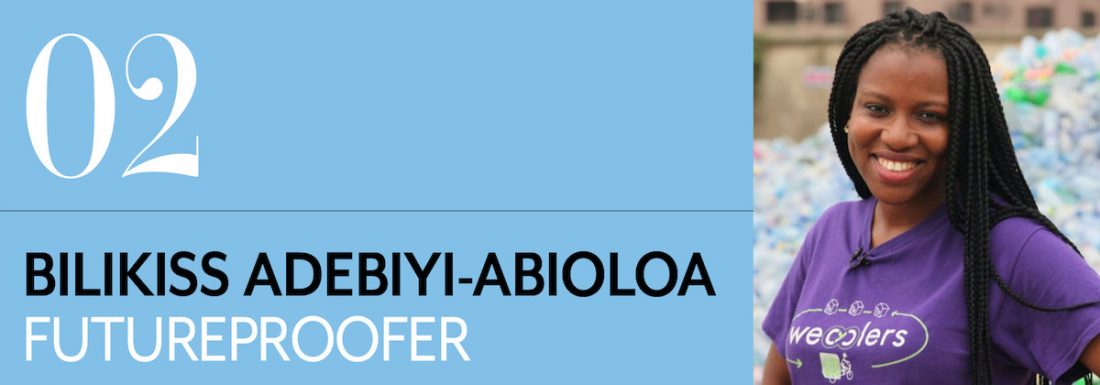
Adebiyi-Abioloa, who left her home city of Lagos, Nigeria to receive education at MIT, founded the recycling company Wecylers around the principle of providing zero-pollution recycling options for Lagos’ 15 million residents.
Its innovative business model uses bikes to provide a no-pollution way to transport recycled materials around the city’s packed traffic, and provides low-income residents with the opportunity to turn their garbage into money and much-needed household basics.
Since 2017, Adebiyi-Abioloa has turned her attention to public service, serving Lagos in senior governmental roles. Her creativity, drive and entrepreneurial capabilities continue to advance positive change for those who need it most.
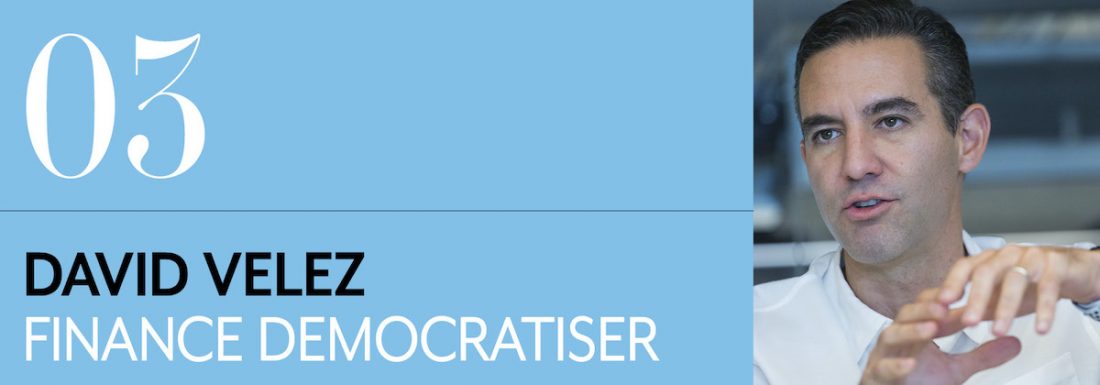
One of the most critical steps to escaping poverty is access to capital. For most people, this comes through banking – something that was not accessible to nearly half of the world in 2011. According to the World Bank, only 51 per cent of adults had ownership of a bank account in 2011, with this figure rising to 76 per cent in 2021.
This is largely due to new digital banking companies that are revolutionising what it means to provide financial capital – and providing those services to the entire world at a rate unimaginable at the turn of the century.
David Velez is one of the visionaries of this revolution. He co-founded Nubank in 2013 to provide financial, banking and other services to the developing world. The company claims a customer base of nearly 60 million people in Mexico, Brazil and Colombia, and in the past year, Velez has become one of the most sought-after business innovators in the world.
He was honoured in the TIME 100 Most Influential People in May 2022, and Nubank experienced great success as it surpassed many legacy financial institutions’ asset size. Warren Buffett’s Berkshire Hathaway has bought US$1 billion of the company’s stock.
By digitising cash wage payments, Velez is merging the best of access to capital with the best of democratising access to that capital. He’s leading a movement that may make the world flatter than even Thomas Friedman could imagine.
Born in Pakistan and educated at America’s Stanford University, Shiza Shahid returned to her home country and helped Malala Yousafzai found Malala Fund – days after Yousafzai was shot in the head for daring to receive an education.
Shahid had helped Yousafzai attend a women’s education forum a few years earlier, which went against the laws of the Taliban, who controlled her village. After Yousafzai was shot, Shahid left her consulting job at McKinsey to co-found the Malala Fund. And while she is no longer with the not-for-profit organisation, her legacy is the millions of girls in Pakistan and several African nations whose education her courage helped make possible.
Now, as Co-Founder and Co-CEO of kitchenware company Our Place, Shahid is bringing her knowledge of the power of representation to shift the culinary traditions of under-represented multi-ethnic communities into the mainstream.
She also heads up NOW Ventures, a partnership she established with equity fundraising platform AngelList to back ‘mission-driven’ startups with diverse founding teams that feature women.
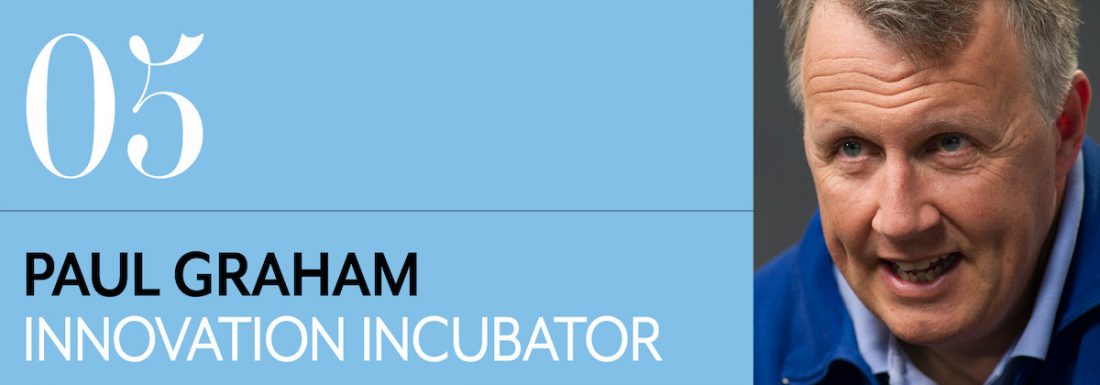
Paul Graham was a tech and software entrepreneur before it was cool; he sold his first company, Viaweb, to Yahoo in 1998. That allowed him to co-found Y Combinator, one of the first business incubators, in 2005 – an intersection of digital revolution and entrepreneurial foresight that has provided seed money to some of today’s most popular business and consumer companies including Stripe, Airbnb, Instacart and Dropbox.
Y Combinator was created to help company founders focus on what they do best – innovate how the rest of us engage with the world. But it’s not just the tech that makes the company’s model a success; it’s also Y Combinator’s intense discipline on a process that has worked time and time again.
Founders participate in a ‘boot camp’ where they have access to expert counsellors who help them with early stage challenges. They also have access to financial and support resources to help them systematically scale.
As noted in an alumni’s post on the Harvard Business School’s website, Y Combinator’s “convergence of people, ideas, and resources in one place provides an ideal environment for startups”. Graham is changing our world not with tech, but by investing in people.
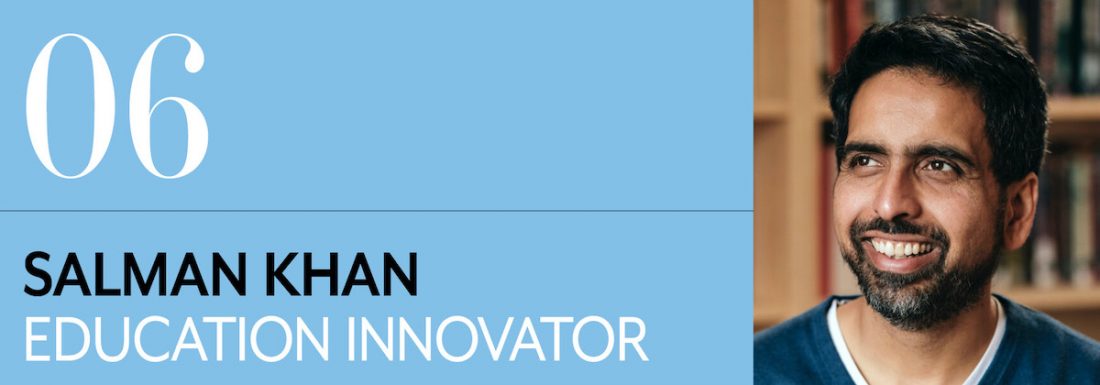
For more than a decade, Salman Kahn has grown a grassroots and grasstops audience that knows no geographic boundaries. Khan Academy was founded in 2008 after Khan had been trying to find effective ways to remotely tutor his cousin.
It has grown from a student tool to a teaching tool, with its YouTube videos amassing almost two billion views and receiving awards, praise and support from The Heinz Awards, the American Academy of Achievement and Stanford AI researcher Andrew Ng.
Khan’s worldwide educational entrepreneurship started at MIT, where he earned several degrees, developed educational software for students with ADHD and tutored students. He put videos of himself tutoring his cousin online and their viral appeal told him he had discovered something big.
Today, his Academy serves more than 137 million people in 190 countries, many of whom came on board when pandemic lockdowns kept people from the classroom. Velez democratised banking; Khan and others like him have democratised education, turning it into a worldwide phenomenon.
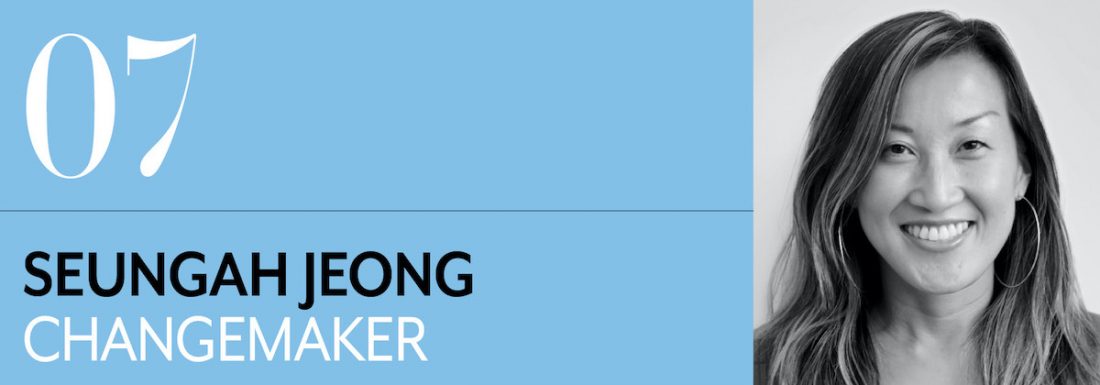
When Seungah Jeong was six years old, she and her family visited their native village and South Korea, and she recalls feeling scared while watching the light of a kerosene lamp. After attending the University of Chicago, the University of Cambridge and the Fashion Institute of Technology, and having a successful career in the fragrance and beauty industry, Jeong, inspired by the memories of this trip, became the President and CEO of MPOWERD.
She pushed the company to improve its solar-powered lights for use in its humanitarian projects. These lanterns are used to replace dangerously flammable kerosene lamps, also preventing the release of around 589,700 tonnes of carbon dioxide into the atmosphere.
The Certified B Corp sells its inflatable solar lights at retail outlets to allow it to subsidise the cost and sell with heavily discounted prices within developing countries.
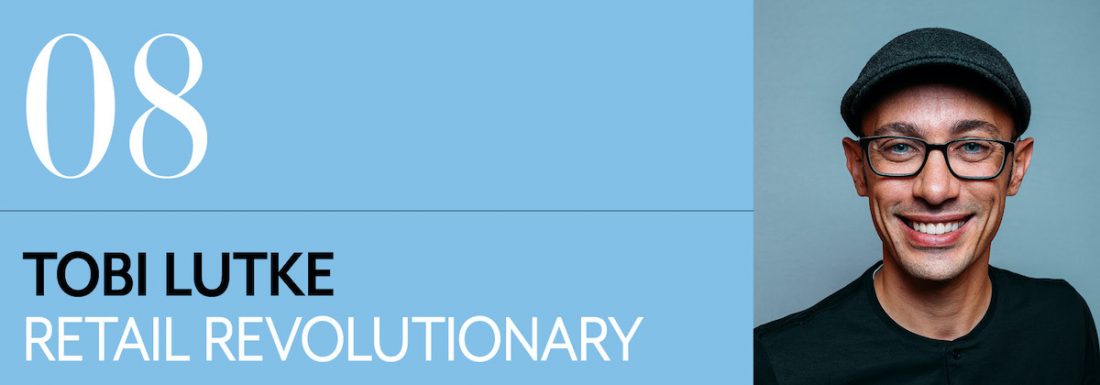
In 2006, Tobi Lutke just wanted to start an online snowboard shop. He was shocked at how difficult it was. This inspired him to embark upon a journey to “arm the rebels” and remove barriers to starting online businesses, reshaping online entrepreneurship.
Thanks to online platforms like Lutke’s Shopify, entrepreneurs can easily set up digital storefronts with integrated marketing, accounting, payments and logistic services within minutes – all without large-scale capital investments, and with the ability to rapidly scale globally.
Sixteen years later, Lutke’s “arm the rebels” mantra has become the face of those who want an alternative to digital giant Amazon. Last year, Shopify was the digital foundation for more than US$175 billion in sales. And while the company is facing some market adjustments as the world returns to in-person shopping, it will continue to give the little person more entrepreneurial power than ever before.

